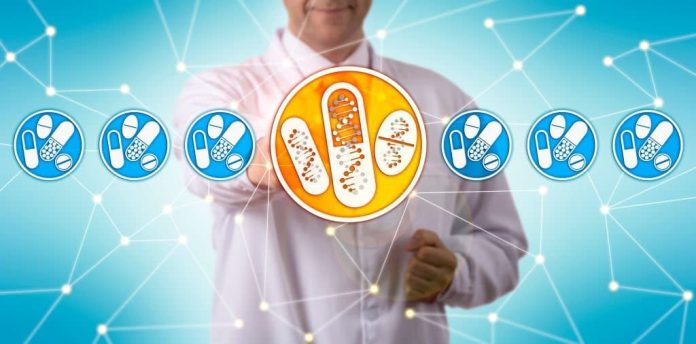Pharmacogenomics studies how genes affect a person’s response to drugs. This relatively new field combines pharmacology (the science of drugs) and genomics (the study of genes and their functions).
Pharmacogenomics can be used for a variety of purposes, including:
Table of Contents
a- Finding new targets for drugs:
Pharmacogenomics can help researchers identify new targets for drugs. By studying how genes affect a person’s response to a particular medicine, researchers may be able to develop new drugs that are more effective and have fewer side effects.
b- Predicting side effects:
Pharmacogenomics can also predict which patients are more likely to experience certain side effects from a particular drug. For example, if a person has a genetic variant known to cause an increased risk of side effects, their doctor may be able to prescribe a different drug or adjust the dosage.
c- Personalized medicine:
Another potential use of pharmacogenomics is personalized medicine. This is where treatments are tailored to an individual’s genetic makeup. For example, if a person has a genetic variant that makes them more likely to respond to a certain drug, their doctor may prescribe it at a higher dose.
d- Improving drug safety:
Pharmacogenomics can also be used to improve the safety of drugs. By studying how genes affect a person’s response to a drug, researchers may identify people who are more likely to experience serious side effects. This information can then be used to develop safer drugs or adjust the dosage for individual patients.
e- Improving drug efficacy:
Pharmacogenomics can be used to improve the efficacy of drugs. By studying how genes affect a person’s response to a drug, researchers may identify people more likely to respond to the medication. This information can then be used to develop more effective medicines or adjust the dosage for individual patients.
f- Identifying new uses for existing drugs:
Pharmacogenomics can also be used to identify new uses for existing drugs. By studying how genes affect a person’s response to a drug, researchers may identify new conditions that the drug may be effective in treating.
g- Generating hypotheses for further research:
Pharmacogenomics can also be used to generate hypotheses for further research. By studying how genes affect a person’s response to a drug, researchers may identify new areas of research that could lead to the development of new medications or treatments.
h- Informing drug development:
Pharmacogenomics can also be used to inform drug development. By studying how genes affect a person’s response to a drug, researchers may be able to identify new targets for drug development or new ways to test drugs.
i- Improving patient outcomes:
Ultimately, the goal of pharmacogenomics is to improve patient outcomes. By studying how genes affect a person’s response to drugs, researchers may be able to develop new and improved treatments that are more effective and have fewer side effects.
Pharmacogenomics is a new and exciting field that has the potential to revolutionize the way we treat diseases. However, many challenges still need to be addressed before we can fully realize the potential of this technology.




